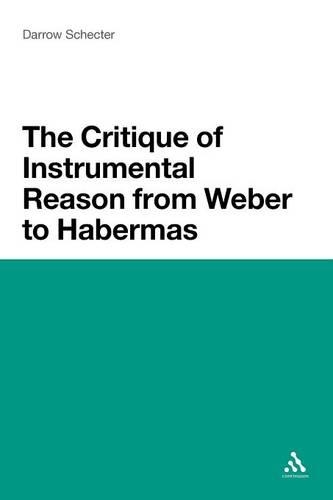
The Critique of Instrumental Reason from Weber to Habermas
(Paperback, NIPPOD)
Available Formats
Publishing Details
The Critique of Instrumental Reason from Weber to Habermas
By (Author) Darrow Schecter
Continuum Publishing Corporation
Continuum Publishing Corporation
26th April 2012
NIPPOD
United States
Classifications
Tertiary Education
Non Fiction
Political science and theory
128.33
Physical Properties
Paperback
272
366g
Description
What different kinds of reason are possible, and which ones are the most appropriate for a legitimate, as opposed to a merely legitimated state
The book opens with an analysis of Weber as a figure who marks a key moment of sociological transition. Weber articulates a distinctly different view to Enlightenment thinkers who believe in the capacity of reason to improve society and emancipate humanity from ignorance and domination. Weber signals that the institutionalization of the instrumental reason particular to industrial society might actually be an effective tool in the struggle for social supremacy. He notes that in comparison with charismatic and traditional legitimation, modern forms of legal-rational legitimation are de-personalised, anonymously bureaucratic, and much more difficult to combat.
The book then looks at various responses to Weber's diagnosis, from Lukcs and Benjamin to Horkheimer, Adorno, Heidegger, Arendt, Simmel, Foucault and Habermas. The study culminates with a sociological reading of critical theory that draws together Adorno's concept of non-identity with Habermas on communicative reason and Luhmann on social complexity and differentiation.
Reviews
"This splendid book contains exceptionally insightful discussions of critical theory, Heidegger, Arendt and other theorists and opens up an exceptionally important argument about the relations between legality and legitimacy." --William Outhwaite, Chair of Sociology, Newcastle University
Author Bio
Darrow Schecter is Reader in the School of History, Art History and Humanities, University of Sussex, UK. He has written books and articles on social and political thought, including Beyond Hegemony (2005); The History of the Left From Marx to the Present: Theoretical Perspectives (2007), and Critique of Instrumental Reason from Weber to Habermas (2010). He teaches history and political theory at the University of Sussex.
